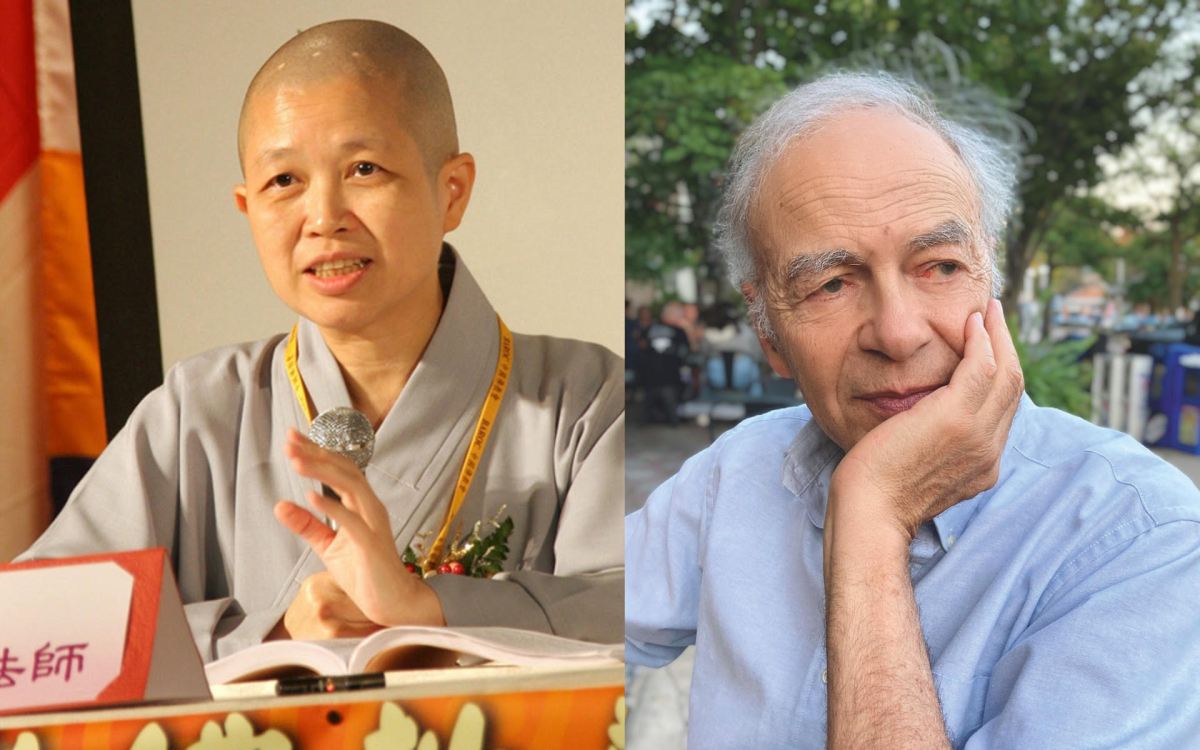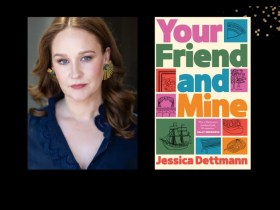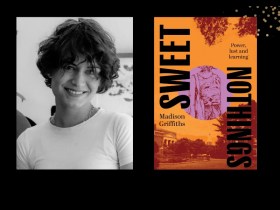Content warning: Ableism
A collaboration between Buddhist nun Shih Chao-Hwei and controversial Australian philosopher Peter Singer, The Buddhist and the Ethicist is an oddly structured, occasionally reprehensible series of conversations between the two prominent thinkers.
From the jump the book seems unsure of how to treat its audience; it seems to want both the allure of an erudite conversation between famous philosophers yet unsure if its readers need the central tenants of the philosophies explained to them. Unwilling to adopt prose sections as some other conversational books do, this conversation – especially early on – seems pulled to halt and explain itself.
The oddity in the book’s use of the conversation form continues in the disparity between Singer’s and Chao-Hwei’s contributions in the first third. Chao-Hwei seems much more present, detailing more of her achievements and their relationship to her general philosophies. This disparity is made more evident by the confusing inclusion of a ‘Key Buddhist Concepts’ chapter but not a utilitarian counterpart, though strangely, this is where the book is at its strongest. Chao-Hwei is engaging and well spoken, and in contrast to Singer’s remarks, presents her arguments with practical, everyday grounding that lends them weight to a reader outside the academic context.
When Singer does become more present, other cracks in the conversational structure of the book begin to show. Singer and Chao-Hwei misinterpret one another and have to repeat themselves, they become distracted by unimportant semantics for pages on end (often using examples involving what they’ve had for lunch), and fall back on weak linguistic circles that go uninterrogated as the conversation drifts towards points that are easier to rebut or more interesting to the speaker.
Chao-Hwei describes science’s ‘inability’ to prove the existence of past lives a weakness of science, not evidence against their existence; Singer seemingly forgets the explanation of the Buddhist stance against “sensual satisfaction” that was explained to him three chapters earlier and must have it re-explained to him.
Worst of all (both structurally and morally), Singer rehashes perhaps his most controversial opinion, that the lives of people with disability are worth so little that there is a moral justification for killing them at birth. Here, this argument is phrased that abortion is justified as it allows parents to enact a moral position, aborting a potentially disabled foetus.
Singer comes across here as hating disabled people, as his argument for abortion (that it allows for parents ill-equipped to meet the care needs of having a child to not have a child) works without reference to disability. In fact, Chao-Hwei points out that the introduction of disability into the argument makes it one that could be (in my opinion, correctly) interpreted as genocidal. Singer hurriedly rebuts this, appealing to the 90% of women in the UK who test their foetuses for Down Syndrome, as if crowd behaviour implies morality.
Read: Book review: Letters to a Critic: Alan McCulloch’s World of Art, Rodney James
Centrally, utilising an uneven structure, The Buddhist and the Ethicist adds little to the contemporary conversation around the wide range of topics the two seem interested in discussing. In a time when the term ‘philosophy’ is bandied around to lend justification to any argument that can adhere to a certain aesthetic, it’s disappointing to see such an inconsistent and poorly argued book come from two prominent thinkers. Chao-Hwei’s detailing of her unique positions on Buddhist thought early in the book is interesting, but it fails to justify the whole conversation. In short, if you’re looking for approachable, mass-market philosophy, A.C Grayling might be the better bet.
The Buddhist and the Ethicist: Conversations on Effective Altruism, Engaged Buddhism, and How to Build a Better World by Peter Singer and Shih Chao-Hwei
Publisher: Text Publishing
ISBN: 9781645472179
Format: Paperback
Pages: 256pp
RRP: $36.99





